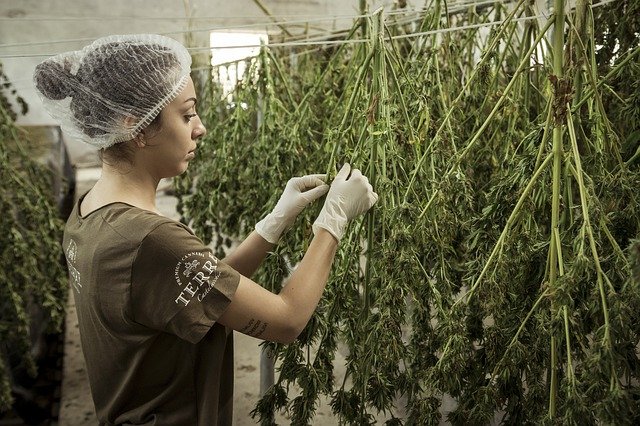The Hemp industry came into the limelight with the launch of Delta-8-THC. It’s the new intoxicating and the most exciting Hemp product these days. Marijuana can get you higher than dogecoin, making you sit around stoned all day on your couch.

CBD on the other hand will give you all the benefits of hemp, but, without the psychoactive effects. Delta-8, however, is in the middle somewhere. It is a synthetically designed THC, that can get you high while also keeping you functional. And the best part is, it is technically legal.
Delta-8: The Game Changer
Delta-8 THC could make a fortune for companies that can successfully create Delta-8 products. Delta-8 is quite rare and very difficult to extract to the appropriate legally approved concentrations. Let alone turn it into a consumable product.
And since it requires a lot of fancy lab equipment to extract Delta-8, it automatically cuts down almost all the competition for companies who can afford such chemical processes.
With the surging demand for the product, right now is the perfect opportunity to build million-dollar brands with this amazing cannabinoid.
Two-three years back, the only thing stopping the D9 fans from switching to D8 was the lack of availability of different types of D8 products. But now, there are countless D8 products available in the market such as Mr. Hemp Flower’s Delta 8 Flower Prerolls, D8 Gummies, D8 Vapes, D8 distillates, D8 Tinctures, D8 Smokes, etc.
How It’s Made: The Science Behind Delta-8 THC
Delta-8 is the 4th most researched cannabinoid of the 21st century. Its earliest research dates back to 1974. Marijuana and Hemp are both the same cannabis plants but carry different concentrations of THC.
The dry Hemp flowers are harvested from the cannabis plant and then go through a long process of isolation, extraction, synthesis, and refining. That creates a wholesale batch of Delta-8 concentration.
After which. Those hemp flowers are broken down and then run through a fine fractural distillation process, utilizing temperature and pressure to completely isolate Delta-8.
Through this process, a distillate of 80% Delta-8 THC is created. After the isomerization process, the end product is refined to be solvent-free and tests under 0.3% of Delta-9 THC concentration.
How Is Delta-8 THC Different Than Delta-9 THC?
THC receptors, also known as cannabinoid receptors, in all their various forms, interact with CB1 and CB2 receptors. CB1 receptors are primarily a resident of the brain and the CB2 receptors are found in the abdominal digestive and immune systems.
As a general rule, THC or Delta-9 interacts more with the CB1 receptors and forms a stronger bond. On the other hand, Delta-8 bonds less potently with many brain receptors including CB1, hence keeping the person completely functional after consumption of Delta-8 THC.
Both of these cannabinoids get their names from their carbon atom bond structure placements. Delta-8 bonds on the eighth chain of the atom, and Delta-9, bonds at the ninth chain of the atom.
The difference might be very minuscule, but it is sufficient enough to react significantly differently with our endocannabinoid systems of the body.
What’s The Legality Status Of Delta-8 THC?
Most people presume that since THC is related to marijuana, all its variants must be illegal. And that is rarely the case here. The legality of Delta-8 mostly depends on how it’s derived.
If it is derived entirely from the hemp plant and the final product carries less than 0.3% of Delta-9 THC, then according to the legislation, Delta-8 would be considered a legal isomer of CBD, hence making Delta-8, technically legal.
In 2018, the US Farm Bill was passed, stating the above-mentioned measurements and marking Delta-8 derived under such measurements to be under controlled substances.
Furthermore, the re-enactment of the US Farm Bill 2022, will provide a much greater opportunity for companies to develop a solid infrastructure for their Hemp product businesses.
Is It Legal In All State-Controlled Jurisdictions?
Despite the federal rule, laws can vary from state to state. Which gives every state the power to control the regulation of Delta-8 and to decide whether or not to ban its use.
However, Delta-8 is not banned from all 50 states. It’s legal in most and only 11 states have banned the regulation and consumption of Delta-8.
That includes Colorado, Delaware, Arizona, Alaska, Arkansas, Iowa, Idaho, Utah, Rhode Island, Mississippi, and Montana.
It is also important to note that the legality of Delta-8 has nothing to do with the legality of cannabis. If cannabis is legal, as seen in Arizona and Colorado, it doesn’t necessarily mean that Delta-8 is legal too.
Also, note that these state law controls don’t just happen for cannabis and hemp industries, it also affects other industries such as Liquor, Tobacco, Gambling, etc.
The Future Of Hemp Industry
Young startups like FreshBros, FlashBuds, Finest Labs, etcetera, all offer pure Delta-8 products. With the surging demand for D8 products, the high performers are starting to experiment with Delta-8.
In the next couple of years, we can expect Delta-8 and other hemp products to have a wider appeal to customers all over the world.
When CBD was legalized, countless influencers attempted to build personal brands and we could see many celebrities, entrepreneurs, athletes endorsing the brands. We can expect to see a similar thing happening for Delta-8.
Since it is a brand new product, not many people to this day are aware that a better form of THC exists for high-performance users. Thus, breaking into the market is even tougher for newbies and startups. Spreading awareness alone can cost thousands of dollars to expenses.
But the biggest challenge that companies are facing right now is the legalization of Delta-8 THC. The judgement for Delta-8 is hazy because it is a new variant of cannabinoid and there aren’t many regulations in the commercial or governmental space about the product.
While the demand has certainly allowed startups to flourish, it also poses trouble for the future. In conclusion, Delta-8 has the potential to innovate and completely redefine the CBD and Hemp market in the coming years.



